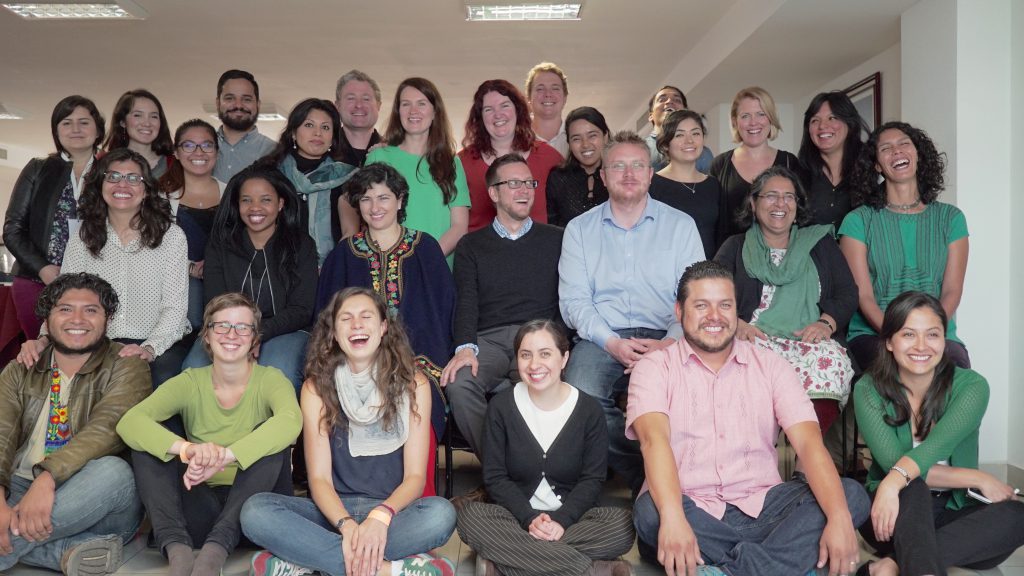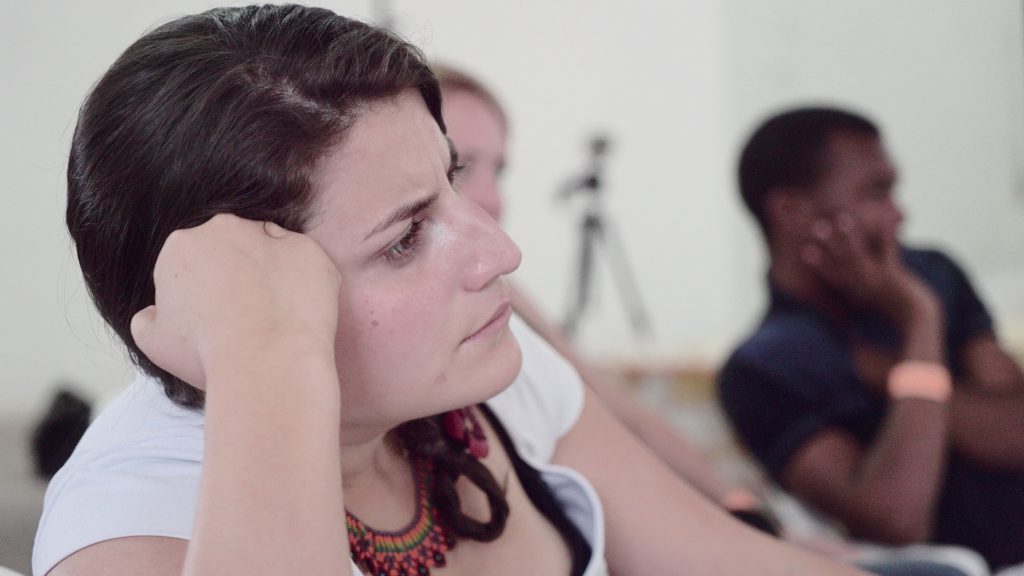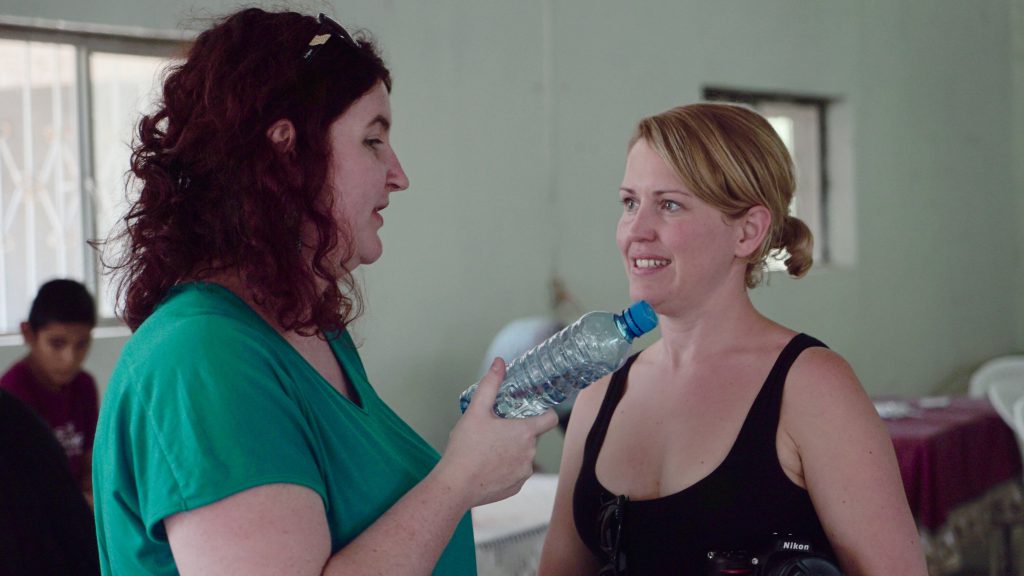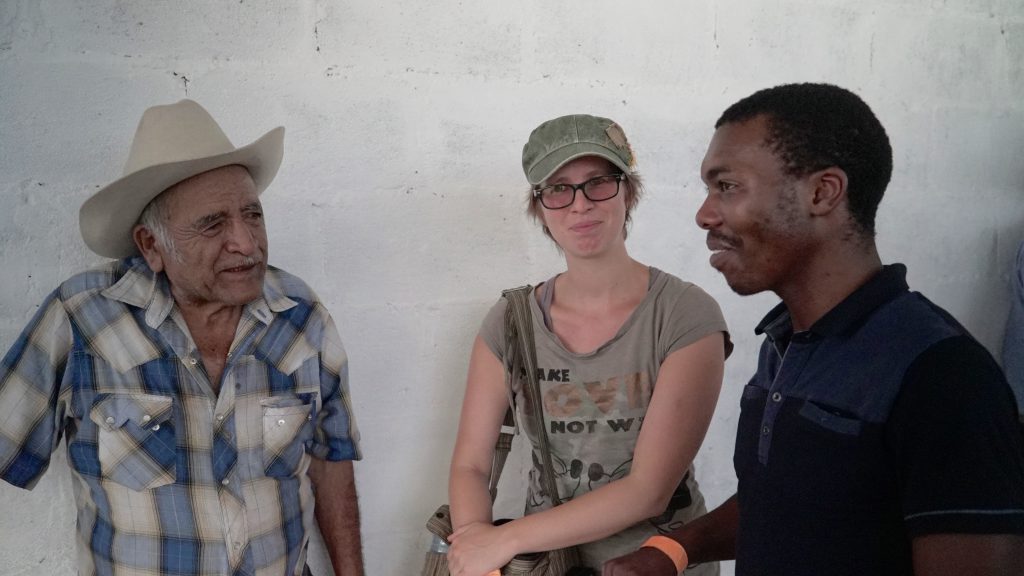Last summer the Educational Exchange was held in Mexico City, hosted by ProDESC. This important international event was made possible thanks to the Bertha Foundation and brought together lawyers from around the world who work for the defense of human rights. These lawyers were able to exchange transnational defense strategies, with a special focus on land rights and economic, social and cultural rights in the face of transnational corporations and governments.

Bertha Fellows and senior lawyers from organizations who work for human rights defense around the world and are part of the Be Just Network, shared a learning space where they could strengthen their knowledge and abilities related to their cases and their broader work. They also had the opportunity to visit La Sierrita, a community in Mexico that ProDESC has been working with for many years. This community’s case is emblematic of the issues arising in relation to the defense of land, territory, natural resources and labor rights in Mexico. As a case study, it allowed our colleagues from around the world to gain a deeper understanding of the legal and community engagement strategies used by ProDESC.

Lawyers and Bertha fellows came together in this Educational Exchange to better understand how local problems tend to be framed in the global context in which transnational corporations and governments operate and to discuss how we can strengthen the human rights litigation strategies in each of our home countries in order to build the power of the local communities we represent to defend their land and territory from corporate exploitation.

Without a doubt, these types of gatherings represent a space for genuine transnational collaboration as well as a place to pursue the goal of contributing to training new generations of human rights lawyers. An example of this was shared by Ana Vega, a Bertha Fellow at ProDESC in Mexico, who said “The cultural exchange in this program left an important mark on me, and shows the confidence put in us as the new generation because, with this, they are giving us the message that what we do is very meaningful and will help to make structural changes”.

Beyond developing strategies for transnational collaboration today, we must also highlight the importance of educational exchange in building know-how in those who will be responsible for representing communities – the other side of the scale – in this very predatory economic context where the scales weigh far in favour of transnational corporations. This is the setting where the megaprojects, extractive industries, and transnational corporations think that the land, territory, and natural resources of the communities that have lived on their lands for generations is for sale and can be destroyed. This balance must be corrected. The Educational Exchange program represents an initiative for strategic resistance and opportunities to create new and alternative proposals in response to many questions that at times seem to be without answers. We need to support the next generation – because they will be the ones to find them.
Check out the video of this Educational Exchange here.

Alejandra Ancheita, Founder and Executive Director, Proyecto de Derechos Económicos, Sociales y Culturales, ProDESC
Follow ProDESC on Twitter: @ProDESC
Article Tags: Bertha Fellows / Cross-Jurisdiction / Educational Exchange / Human Rights / human rights lawyers / International Human Rights / Land Rights / movement lawyering / ProDESC